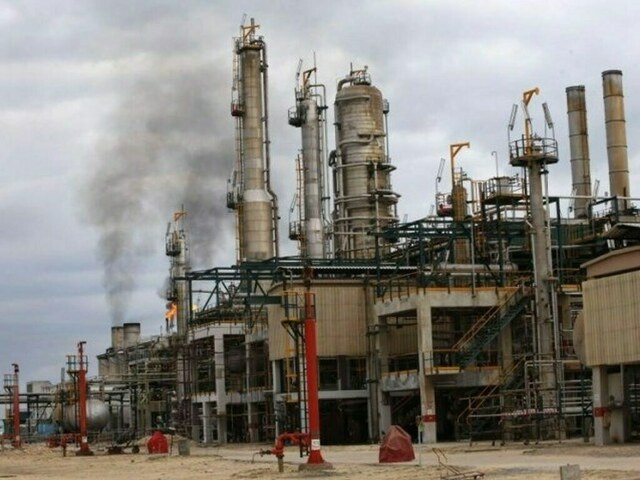LAHORE: The Lahore Chamber of Commerce & Industry has voiced its concern over the recent issuance of retrospective gas bills to industrial consumers by Sui Northern Gas Pipelines Limited (SNGPL) under the directive of the Oil & Gas Regulatory Authority (OGRA). The LCCI has urged the government and regulatory bodies to review and withdraw the decision to protect industrial sustainability, maintain investor confidence and ensure the continuity of economic growth.
The matter was discussed at length during a press conference held at the LCCI premises, presided over by President Mian Abuzar Shad and attended by Senior Vice President Engineer Khalid Usman, Executive Committee Member Rana Muhammad Nisar and other senior representatives of the business community.
Address a Press Conference, LCCI President Mian Abuzar Shad explained that, under a recent decision, SNGPL has issued bills to industrial consumers for the past four years, calculated on the basis of the Retrospective LNG Rate Difference.
He said that these bills, in some cases amounting to hundreds of thousands and in others reaching tens of millions of rupees per industrial unit, pose a serious challenge for businesses already operating in a difficult economic climate.
He pointed out that the industrial sector is currently facing multiple pressures, from high electricity tariffs and rising production costs to fluctuating raw material prices and tight credit conditions. In such circumstances, a sudden and substantial retrospective billing places an additional strain on industries that are striving to remain competitive both domestically and internationally.
Mian Abuzar Shad said the OGRA, since its establishment in 2002, has played a significant role in regulating Pakistan’s oil and gas sector, ensuring transparency and monitoring the quality of services provided to consumers. Its responsibilities include setting petroleum and gas prices based on fair principles, improving supply and distribution systems and resolving disputes between consumers and suppliers.
He said that decisions with far-reaching implications should be made in consultation with all stakeholders, particularly the business community.
“We believe that open dialogue between regulators, utility providers and industry representatives can help design policies that are both practical and equitable.”
The LCCI president said that backdated billing of such magnitude could impact the financial stability of industrial units, potentially leading to reduced production capacity, delayed investments and a slowdown in job creation.
He said that this issue is not limited to a few companies, it has the potential to affect the entire industrial base of the country. The government’s goal of industrial growth and economic recovery cannot be achieved if businesses are burdened with unanticipated costs of this scale.
Senior Vice President Engineer Khalid Usman, while sharing his views, called for a constructive approach to resolving the issue. He urged the Government of Pakistan, OGRA and SNGPL to work closely with the business community to create a transparent, fair and predictable billing system.
“Policies should encourage industrial expansion, competitiveness and employment generation rather than introducing measures that may hinder progress. We believe a balanced approach can address the concerns of all stakeholders,” he added.
The LCCI office-bearers said that private sector representation in OGRA be institutionalised, ensuring that the voices of industry stakeholders are included in policy formulation. Such representation, they said, would not only lead to more inclusive decision-making but also enhance the trust and cooperation between the regulator and the regulated sectors.
He said that business community wants to work constructively with the government and regulatory authorities to address challenges in the energy sector.
They said that the prosperity of the industrial sector directly contributes to national economic development, job creation and increased exports, making it essential to ensure a stable and predictable business environment.
Copyright Business Recorder, 2025


